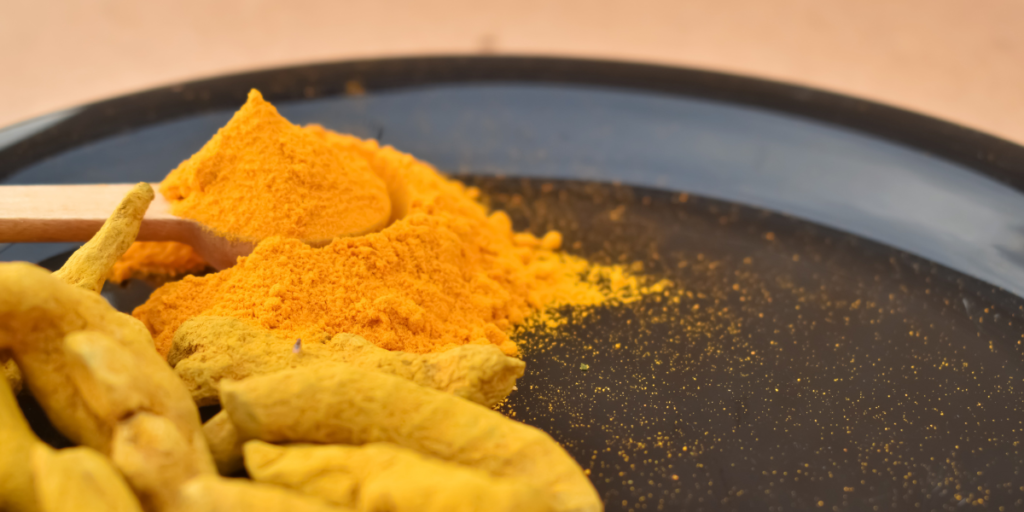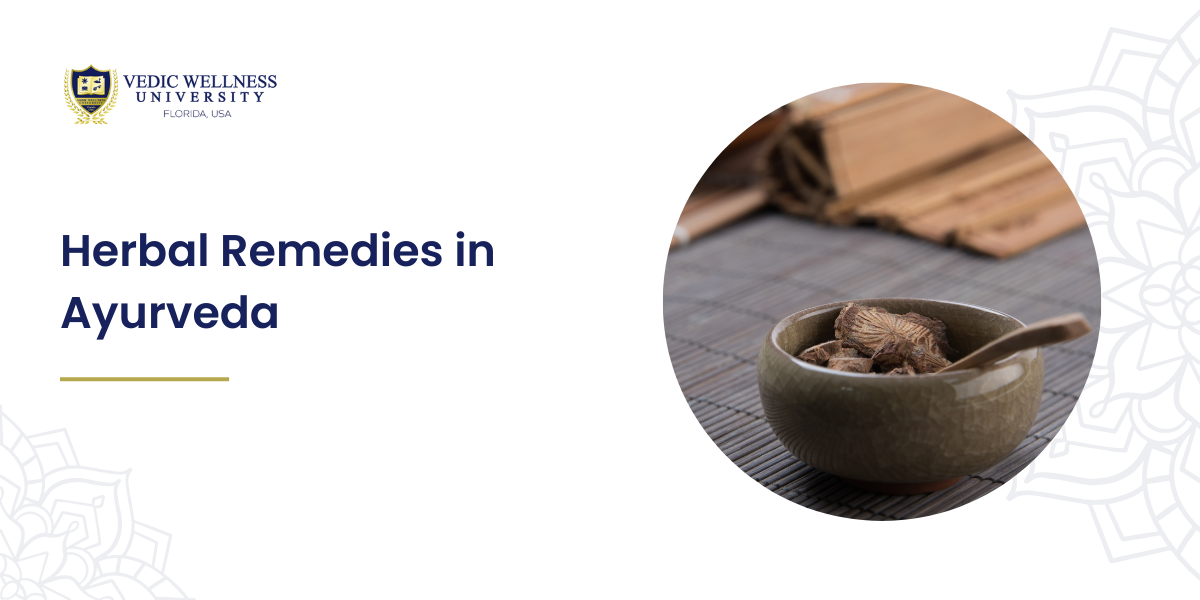Ayurveda, the ancient system of medicine from India, has long emphasized the healing power of herbs. At Vedic Wellness University, we integrate traditional Vedic knowledge with modern practices to provide a holistic education in natural health solutions. This blog explores the benefits of herbal remedies in Ayurveda and their effectiveness in treating common ailments.
The Foundations of Ayurveda
Ayurveda, which translates to “the science of life,” is based on balancing the body, mind, and spirit. It categorizes individuals into three doshas: Vata, Pitta, and Kapha. Imbalance in these doshas leads to illness, and Ayurvedic treatments, including herbal remedies, aim to restore this balance.
“Swasthasya swasthya rakshanam aturasya vikar prashamanam cha”
(To protect the health of the healthy and to alleviate the disorders of the sick.)
– Charaka Samhita
Benefits of Herbal Remedies in Ayurveda
Herbal remedies in Ayurveda are derived from plants and natural substances, offering a safe and effective way to treat various health conditions. These remedies are known for their minimal side effects and holistic approach to healing.

Common Ailments and Ayurvedic Solutions
1. Digestive Issues
Digestive problems like indigestion, bloating, and constipation are common. Ayurveda recommends herbs such as ginger, fennel, and Triphala to improve digestion and relieve discomfort.
“Aharaparinam karanam jeernam pachan sevanat”
(Food is digested and assimilated due to the action of digestive enzymes.)
– Sushruta Samhita
2. Respiratory Conditions
Herbs like Tulsi (Holy Basil), Licorice, and Turmeric are effective in treating respiratory issues such as asthma, bronchitis, and cough. Tulsi, known for its anti-inflammatory and antibacterial properties, is especially beneficial.
3. Skin Disorders
Ayurvedic herbs such as Neem, Aloe Vera, and Turmeric are widely used to treat skin conditions like acne, eczema, and psoriasis. These herbs possess anti-inflammatory, antimicrobial, and healing properties.
Integrating Herbal Remedies into Daily Life
Incorporating herbal remedies into your daily routine can promote overall health and prevent illnesses. Simple practices like drinking herbal teas, using herbal supplements, and applying herbal oils can make a significant difference.
4. Stress and Anxiety
Ashwagandha and Brahmi are potent herbs used in Ayurveda to combat stress and anxiety. These adaptogenic herbs help regulate the body’s stress response and promote mental clarity and relaxation.
“Prasanna atma indriya manah swastha iti abhidhiyate”
(Health is a state of complete physical, mental, and social well-being.)
– Sushruta Samhita
Global Acceptance and Research
The efficacy of herbal remedies in Ayurveda is increasingly recognized worldwide. Research studies have validated the benefits of Ayurvedic herbs, leading to their integration into modern healthcare systems. Countries such as the USA, Canada, and Australia have seen a rise in the popularity of Ayurvedic treatments.
Learning Ayurveda at Vedic Wellness University
Vedic Wellness University offers a comprehensive curriculum in Ayurveda, including the study of herbal remedies. Our programs are designed to provide students with in-depth knowledge and practical skills to apply Ayurvedic principles in their lives and careers.

Conclusion
Herbal remedies in Ayurveda offer natural and effective solutions for common ailments, emphasizing the importance of balance and holistic health. At Vedic Wellness University, we are committed to preserving and promoting this ancient wisdom, integrating it with modern practices to provide a comprehensive education in natural health. Embrace the healing power of Ayurveda and discover the benefits of herbal remedies for yourself.
For those interested in exploring this ancient science, Vedic Wellness University provides the ideal platform to learn and grow. Join us and discover the profound impact of Ayurveda on your health and well-being.


